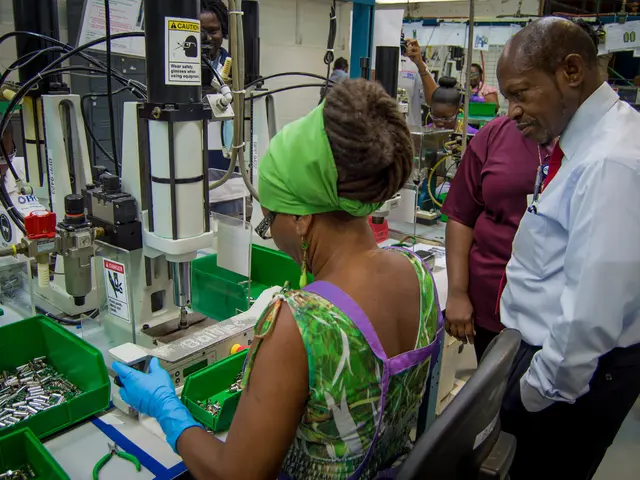Germany's 'Karenztage' Debate: Critics Warn of Employee Health Risks
A heated debate has emerged in Germany over 'Karenztage', a proposal to temporarily suspend sick pay at the start of an illness. While some economic voices see it as a potential cost-saving measure, a majority of executives, HR professionals, trade unions, and politicians criticize the idea, arguing it could undermine employee well-being and trust.
The NRW Ministry of Labour, Health and Social Affairs has emphasized the responsibility of employers to protect employee health. Minister Karl-Josef Laumann and HR expert Magdalena Rogl have both spoken out against the 'Karenztage' debate, expressing concern that it could discourage employees from seeking medical attention.
Companies that prioritize employee well-being are seen to gain a competitive edge in attracting talent. Jens Baas, CEO of TK, has stated that healthy and satisfied employees are crucial for a successful company. He, along with two-thirds of surveyed executives and HR professionals, opposes reducing sick pay. Instead, many companies are focusing on improving working conditions and fostering a trusting corporate culture.
Trade unions and social associations have warned of potential distortions if employees avoid visiting the doctor due to cost reasons. The proposal of 'Karenztage' has been criticized by politicians and experts, with some arguing it could reduce costs for health insurance but at the expense of social security and employee protection.
Despite the ongoing debate, many companies remain committed to prioritizing employee well-being. They recognize that a healthy and trusting work environment not only benefits employees but also gives them a competitive advantage in attracting talent. The future of 'Karenztage' remains uncertain, but the emphasis on employee health and well-being is likely to continue.
Read also:
- Is it advisable to utilize your personal health insurance in a publicly-funded medical facility?
- Dietary strategies for IBS elimination: Aims and execution methods
- Benefits, suitable dosage, and safety considerations for utilizing pumpkin seed oil in treating an overactive bladder
- Harmful Medical Remedies: A Misguided Approach to Healing








